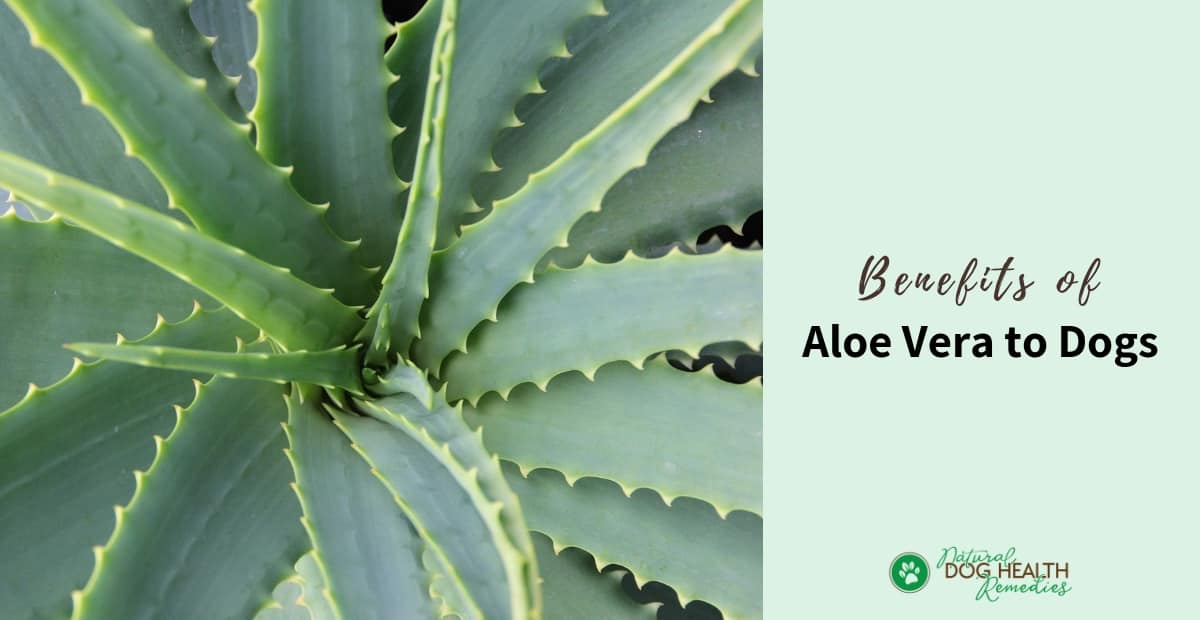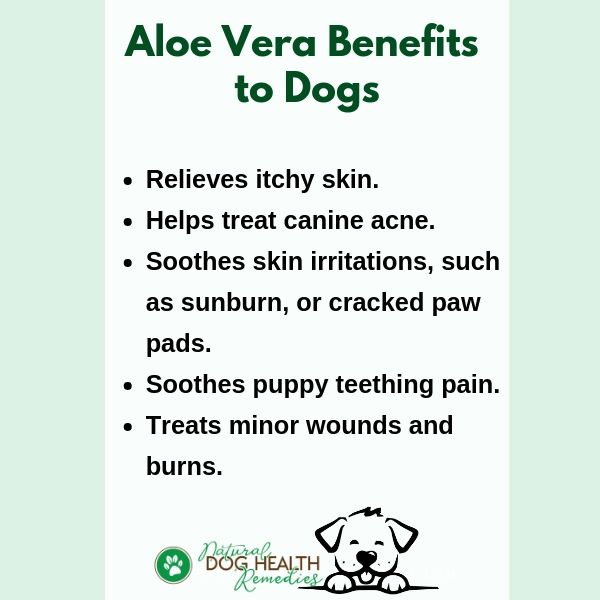Benefits of Aloe Vera to Dogs

Overview
Aloe vera is very easy to grow indoors in all climates and outdoors in warm weather. In hot summer days, make sure that the plant is not directly in the scorching sun. Indirect light is the best.
The main constitutents of this herb are amino acids and minerals (calcium, folate, iron, magnesium, phosphorous, potassium and zinc), as well as vitamins A, C and E.
Aloe vera has a lot of therapeutic properties, including anti-bacterial, anti-inflammatory, antioxidant, anti-allergy, and even anti-cancer. It also soothes skin irritations and heals wounds.
Is Aloe Vera Safe for Dogs?
With so many therapeutic properties, you may wonder whether aloe vera is safe to use on dogs as well. For example, can you put aloe vera on dogs? Can you give the juice to your dog?
Aloe vera is very skin soothing and cooling, and it is safe to put aloe gel on a dog's skin.
Aloe juice is also good and nutritious for dogs. The chemical compounds found in the herb are found to have antioxidant and anticancer actions in the body.
You can give aloe juice to your dog as a general tonic (up to 1 tablespoon per 10 pounds of body weight).
You may also want to give aloe juice to your dog for detoxification. Many dog parents also add the juice to their dogs' drinking water to prevent cancer, or as a complementary cancer "remedy".
But if you do decide to give aloe juice to your dog, make sure that:
- the juice uses organically grown aloe vera,
- the product is free of artificial colors and flavors, as well as other questionable ingredients such as sugar, corn syrup, etc.,
- the juice is made only from the inner fillet, and NOT from the whole leaf (not "whole leaf" preparations). Whole leaf preparations contain the outer rind, which is laxative and can cause diarrhea in dogs (and people).
Common Topical Uses of Aloe Vera on Dogs
The juice or gel of aloe vera has great healing power. It is commonly used on both people and dogs to heal minor wounds and soothe irritations. Here are a few examples of how it can be used topically on dogs:
- Itch Relief: The fresh juice or commercially prepared gel of aloe can be applied to irritated skins caused by such skin problems as hot spots, eczema, mange, and lupus to relieve the intense itching. It also brings immediate relief to fleabites and poison ivy, and reduces the itch on wounds after surgery.
- Acne Treatment: If your young pup has acnes on the skin, try this herb! The gel-like juice cools and soothes the skin and helps kill bacteria. You can apply aloe vera gel on your puppy's acne several times a day after washing her face.
- Sunburn Treatment: Again, make use of the soothing property of aloe's gel to treat sunburn on your dog's skin, or cracked paw pads. If you have an aloe plant, just break off a leaf and squeeze out the gel. Spread the gel on your dog's paws or sunburned sore spots. Of course, you can also get an aloe cream and use as instructed on the label.
- Puppy Teething Pain Relief: The soothing aloe gel can also be used to relieve teething pain in puppies. Freeze some aloe vera juice in a small paper cup. Once it is frozen, you can peel back the paper cup and rub the frozen juice on the puppy's gums. This will soothe the discomfort in the gums, and will numb the pain almost immediately.
- Wound Dressing: Aloe is commonly used as a topical skin dressing for curing minor burns and wounds. The juice/gel can be applied, once or twice daily, to lightly cover the wound. Allow it to dry and let it stay on as long as possible.

An Aroma-Aloe-Gel for Your Dog
This gel is great for eczema and itchy skin caused by insect bites, dry skin and parasites.
You need the following essential oils:
- 4 drops rosemary (DO NOT use on dogs with epilepsy)
- 2 drops peppermint
- 1 ounce aloe vera gel
Mix the oils in the aloe vera gel. Apply to irritated areas.

J.A. Duke, The Green Pharmacy Herbal Handbook: Your Comprehensive Reference to the Best Herbs for Healing (Rodale Books, 2000).
C.J. Puotinen, Natural Remedies for Dogs and Cats (Keats Publishing, 1999).
M.L. Wulff-Tilford and G.L. Tilford, Herbs for Pets (Bowtie Press, 1999).





